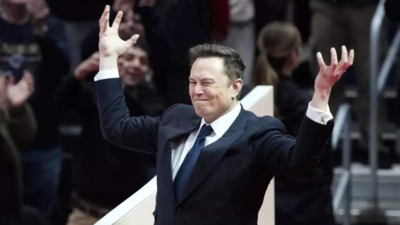Elon Musk has always been a polarizing figure. His ventures span space, artificial intelligence, and electric vehicles, but now, a more curious aspect of his empire is drawing attention: his growing network of 19-year-old recruits placed in key government roles. These aren’t your typical Silicon Valley interns; they’re young individuals with little to no experience, yet they hold powerful positions that influence US federal agencies.
A recent WIRED investigation has raised serious concerns about this trend, especially as these recruits seem to be moving quickly into roles traditionally reserved for seasoned professionals. In fact, some of them are still in college, with no formal government experience. The question is, how did a fresh crop of young engineers and tech enthusiasts gain access to some of the most sensitive information in US governance?
Rise of Musk’s Department of Government Efficiency (DOGE)
Musk’s ambitions aren’t just limited to his tech ventures. As per reports, the Department of Government Efficiency (DOGE) is at the center of this phenomenon. DOGE, spearheaded by Musk, aims to reform US government functions by injecting efficiency, but the methods behind this transformation are causing unease. Many of the new hires in this department are 19-year-old recruits, some straight out of high school, tasked with influencing key aspects of government administration.
One of the more unsettling revelations is that these young engineers, some still students, have been granted access to top-level government systems. Some have even earned “A-suite” clearance, giving them access to high-level government discussions, including those within the General Services Administration (GSA) and the US Treasury, which manages the country’s massive $6 trillion budget.
The report highlighted how one of Musk’s young recruits, a freshman at a major tech-focused university, is already playing an active role in government projects. In fact, he is attending calls with GSA employees, who are now required to justify their work to someone nearly half their age.
Who are these young recruits?
The backgrounds of these young government operatives share a pattern—top tech talent from elite universities, often with experience in Musk-affiliated ventures like SpaceX, Neuralink, and Twitter. Many of them are fresh high school graduates, placed in critical roles where they interact with senior government officials.
- One recruit is a computer science student from a top US university who previously interned at Meta and Palantir, the data analytics firm co-founded by Musk ally
Peter Thiel . - Another was a software engineering intern at Neuralink before being given database access at a federal agency.
- One standout figure is a 21-year-old computer scientist who gained global attention for using AI to decode words from a 2,000-year-old volcanic scroll—before being recruited into Musk’s government network.
- A former Twitter engineer in his early 20s has now become a special advisor to the director of the Office of Personnel Management (OPM), an agency overseeing millions of federal employees.
- An AI startup founder has been placed in a strategic advisory role, aligning with Musk’s push for artificial intelligence integration in government operations.
While their exact roles remain somewhat opaque, their presence in high-level government meetings suggests that Musk is leveraging young, tech-savvy minds to reshape bureaucratic processes from the inside.
The unseen hand of Peter Thiel
The connections don’t stop with Musk. A key player in this scenario is Peter Thiel, another influential billionaire known for his libertarian leanings. Thiel’s fellowship program, which has groomed many of Silicon Valley’s brightest minds, appears to be intricately linked to this new wave of young government operatives.
Musk, Thiel, and others share a similar vision: a government influenced heavily by tech and entrepreneurial minds. In their view, traditional bureaucratic processes need to be overhauled, and who better to do that than a group of young engineers with fresh perspectives?
Critics, however, argue that Musk’s vision raises troubling questions about the balance of power and oversight in government. The access these young engineers have to sensitive systems and information might not only pose security risks but also raise concerns about accountability. Can these unvetted young minds truly handle the weight of managing some of the most critical areas of US governance?
Brave new world of government efficiency?
Despite the controversy, Musk and his allies defend their positions, claiming that their access is “read-only,” meaning they don’t directly intervene in the workings of these agencies. However, the influence they wield, even from the sidelines, is undeniable.
As more 19-year-olds, recently appointed to the Office of Personnel Management (OPM), step into the spotlight, it becomes clear that Musk’s goal of injecting tech-savvy, efficiency-driven personnel into federal systems is well underway.
But the underlying question remains: Why are these young engineers so tightly woven into the fabric of government? And what are the broader implications of this growing trend? As we continue to watch Musk’s influence in Washington, it’s clear that the next generation of leaders is already here. The only question now is whether they are truly prepared for the immense responsibility they’re being handed—or if this trend is setting us up for unforeseen challenges.


